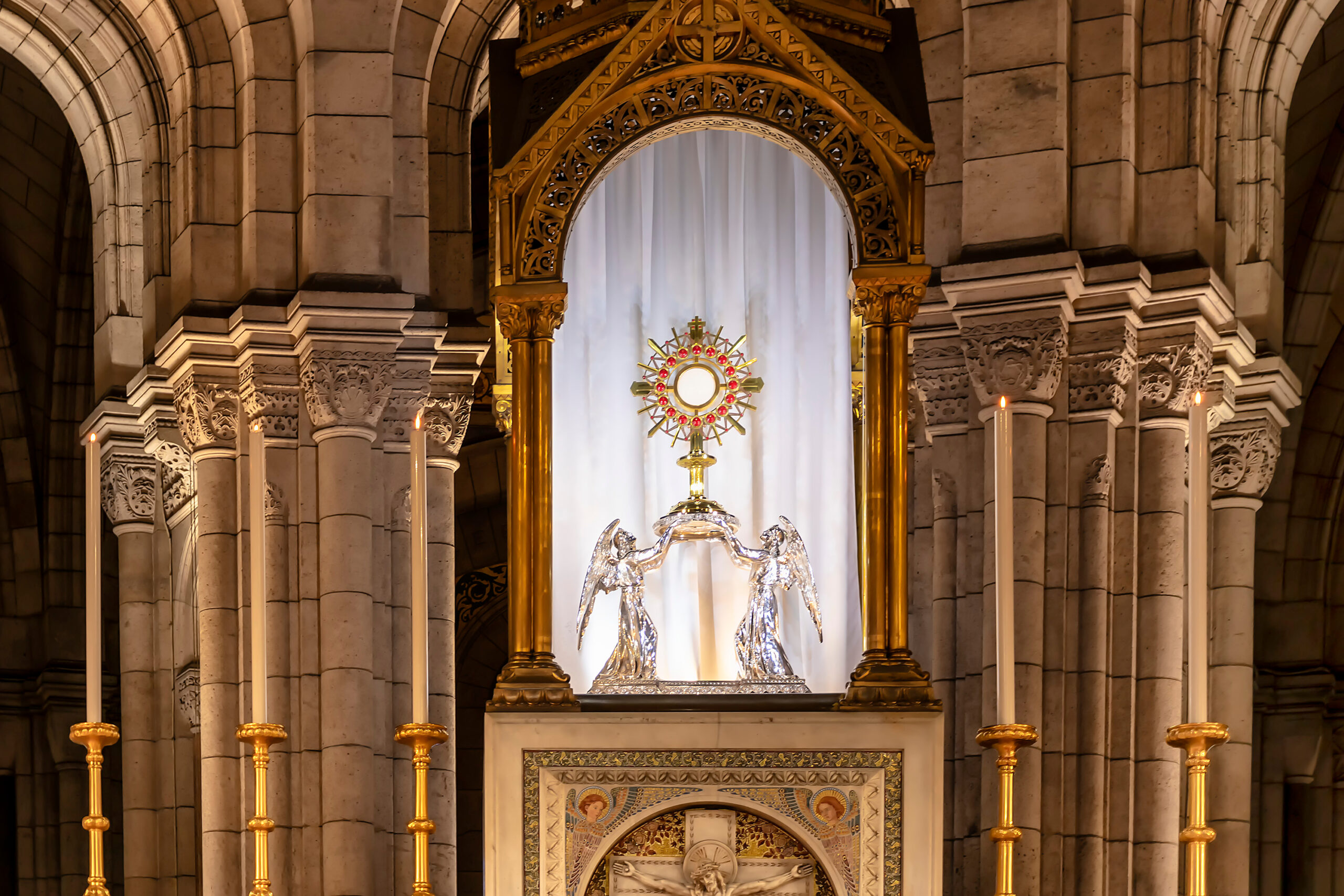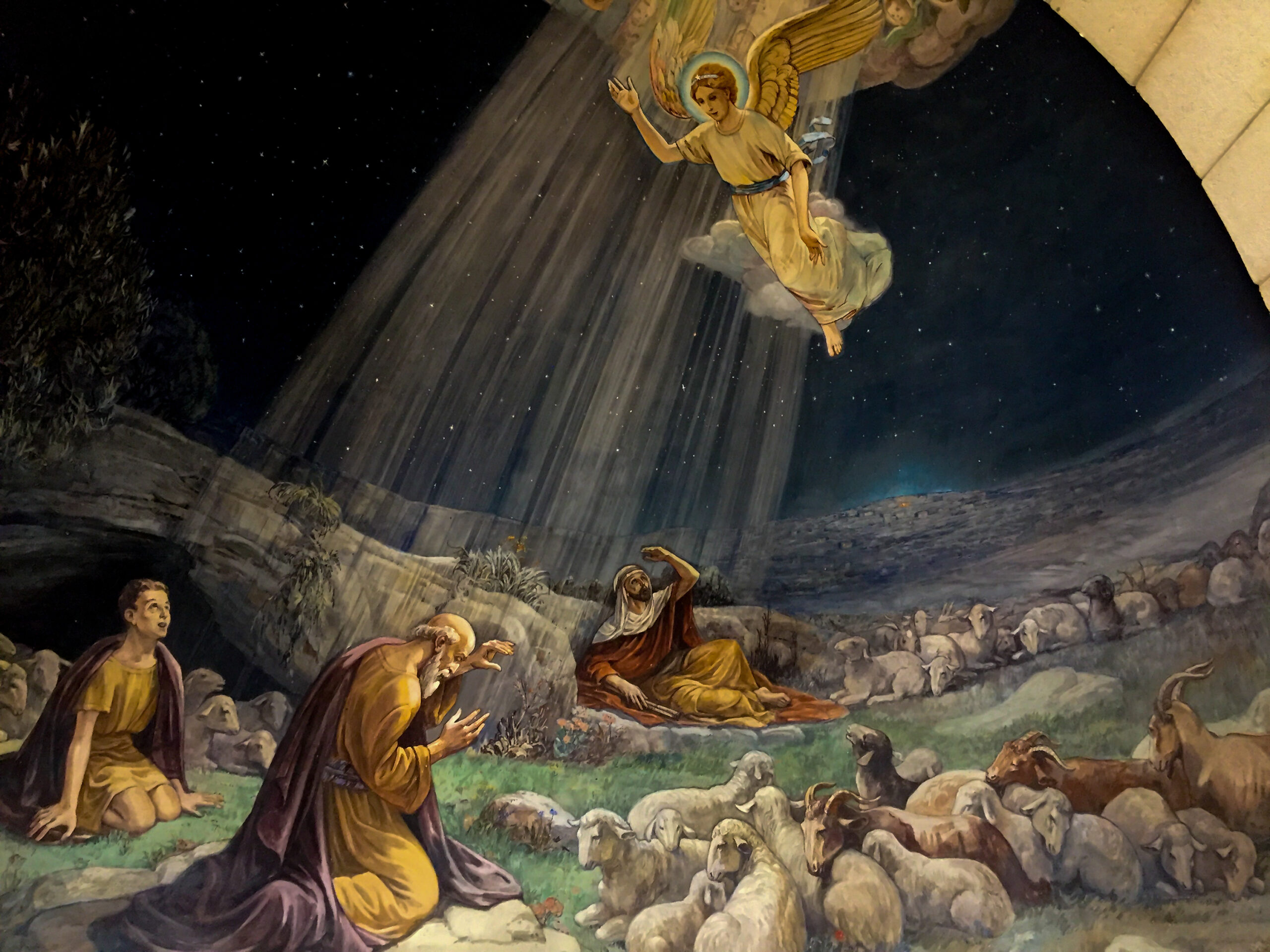This story of the Annunciation is related not a one-time occurrence in human history, but repeats many times throughout the ages. Indeed, it happens as often as a new rational soul is conceived. In the life of every man and woman born into the world there is an annunciation of the angel of God. Rather, this annunciation occurs every time that God’s grace is poured forth from heaven into any soul. All too often the story is very different from Mary’s. Grace is spurned. Souls are not found in the attitude of prayer as was Mary. They are not on their knees. Their hearts are not as was the immaculate heart of Mary, attuned to the loving heart of God. The voice of the angel is drowned out by the noise of the world and the distractions of modern living.
During these Advent days God is sending His angel of grace to drop the seed of inspiration to Christian living into our hearts. We must till the soil by prayer and penance if the seed would take root. We must be on our knees, like Mary, and in the silence of our chamber, in reflection must we be found if the angel is to be heard above the tumultuous riot of noise and distraction which characterizes our day.
The important thing about the annunciation of Mary is that she heard in silence the invitation. She reflected and then accepted. Acceptance of God’s inspiration depends on us. God never, never forces our wills! We are not conditioned by grace. We are free to refuse. Therein is the story of salvation.
God comes into the world as He did at Bethlehem and knocks upon the inn of human hearts. Angels like Gabriel are sent by God as His messengers from heaven. They give us the gravitation of heaven. They set a tugging or pulling of our hearts. They move us to good by gentle reminders and holy inspirations. But they never force our souls!
With every annunciation, it is sad to say, there is the possibility of a renunciation of grace. Acceptance requires the work of a good life and the practice of virtue. Hence, Advent penance and prayer are a prerequisite if we are to imitate Mary. Angels’ songs are sweet to contemplate. Ave Marias are pleasant to hear. But we must do our part and add our share to the angels’ task. We are men and women of flesh and blood and have been created just a little less than the angels. We must strive for perfection that we may be in a position like Mary to say: Fiat mihi secundum verbum tuum—“Be it done unto me according to thy word.”
During this final week of preparation for Christmas, let our prayer be, “Speak, Lord, for thy servant heareth” (1 Samuel 3:10). The Psalmist reminds us, “If, today, you hear His voice, harden not your heart” (Psalm 94:8). Christmas takes us back in memory to Bethlehem and to Nazareth. The story of Bethlehem is the tale of God’s obedience. He was obedient to the will of the Father in assuming human form in order to placate divine justice. Mary continues the procession of divine love, she places her heart at the disposal of God’s movements of grace. Without her obedience the angel’s song would have been discordant. Without God’s great act of humility in coming to Bethlehem, there would have been no Redemption. And without man’s submission to God’s will in imitation of Mary’s response at Nazareth there can be no peace on earth. Bethlehem or Nazareth is not an incident of history. It is repeated every time God comes to hearts that are opened to receive Him. In this year of grace as we prepare for Christmas we are making history. There is always an annunciation, for God gives grace to all creatures. Please and pray God, may there be less renunciations!
This article is taken from a chapter in Spiritual Steps to Christmas by Msgr. Aloysius F. Coogan, which is available from TAN Books.









